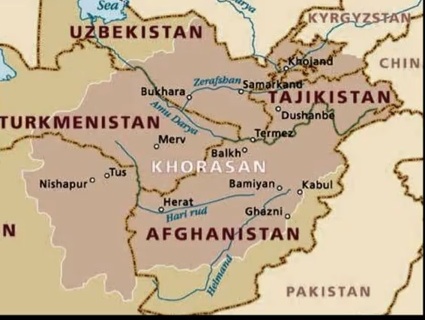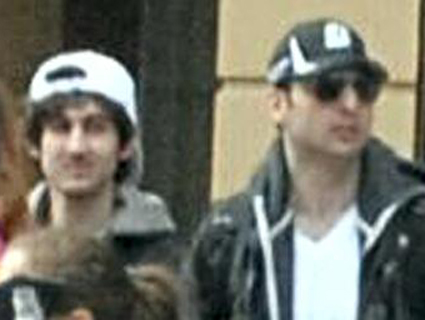
Former high school classmates of Dzhokhar Tsarnaev, the Boston Marathon bombing suspect who remains at large, reacted with shock and disbelief on social media Friday morning. The following screenshots provided to Mother Jones are of Facebook messages posted by former classmates of Tsarnaev, who called him “Jahar.” They were provided by a classmate who did not know the suspect well but who was friends with those who did; this source wishes to remain anonymous. Some of the former classmates’ comments assume Tsarnaev is guilty, though he is still only a suspect in the bombing, according to law enforcement authorities. In Cambridge, Tsarnaev was reportedly a 2011 City Scholarship recipient and wrestler. One photo posted on Facebook by a classmate appears to show Tsarnaev in a wrestling huddle with teammates:
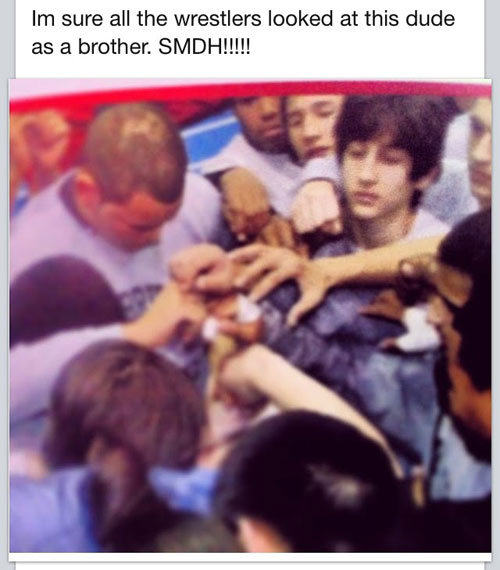
A second former high school classmate told Mother Jones: “I did know Jahar. In the 4 years of high school I spent with him, he was nothing but a kind, unassuming, gentle person. He was funny, had lots of friends, and was very athletic. I haven’t spoken with him since high school (we graduated in the same class from Cambridge Rindge & Latin).”
Another acquaintance said she knew Dzhokhar from the University of Massachusetts-Dartmouth. She said he had a group of “maybe four or five” Russian-speaking friends whom he was never without. “All I really knew of them was that they smoked weed and liked to party, just like regular kids. Jahar was such a sweetheart.”
Other former classmates expressed their disbelief on Facebook:
“Watching the news I was texting a friend saying it looks like him as a joke, but to have them identify the person I called a friend…”

“I can’t believe I went through four years of high school and was friends with someone who carried out a terrorist attack.”
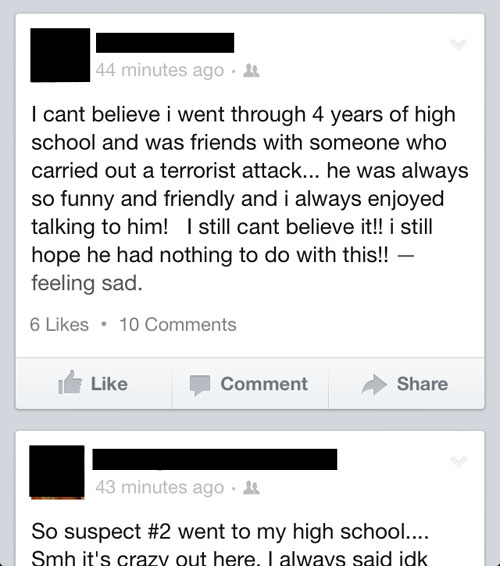
“I remember when he was the new kid in our class back in Cambridge Port. I had classes in high school with him.”
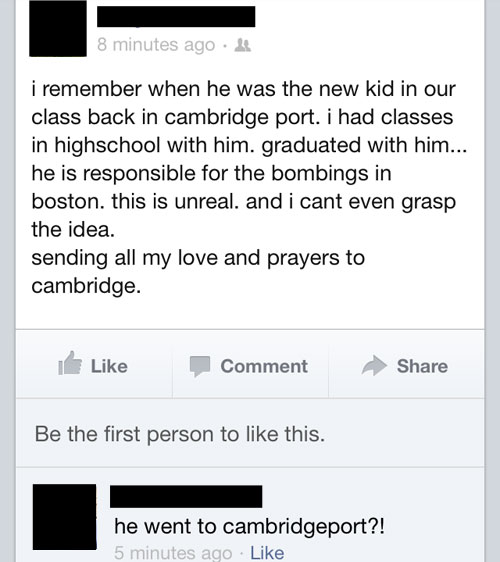
“I don’t believe I know that bomber… And I’ve known him for years!”
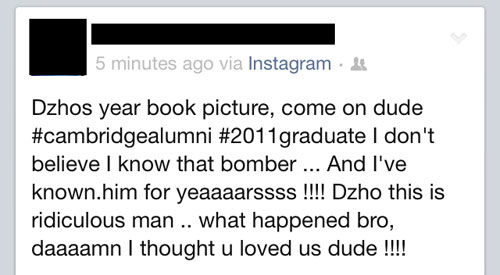
Dzhokhar Tsarnaev’s high school yearbook photo:

*The names of two sources initially included in this piece have been removed at those sources’ request.
